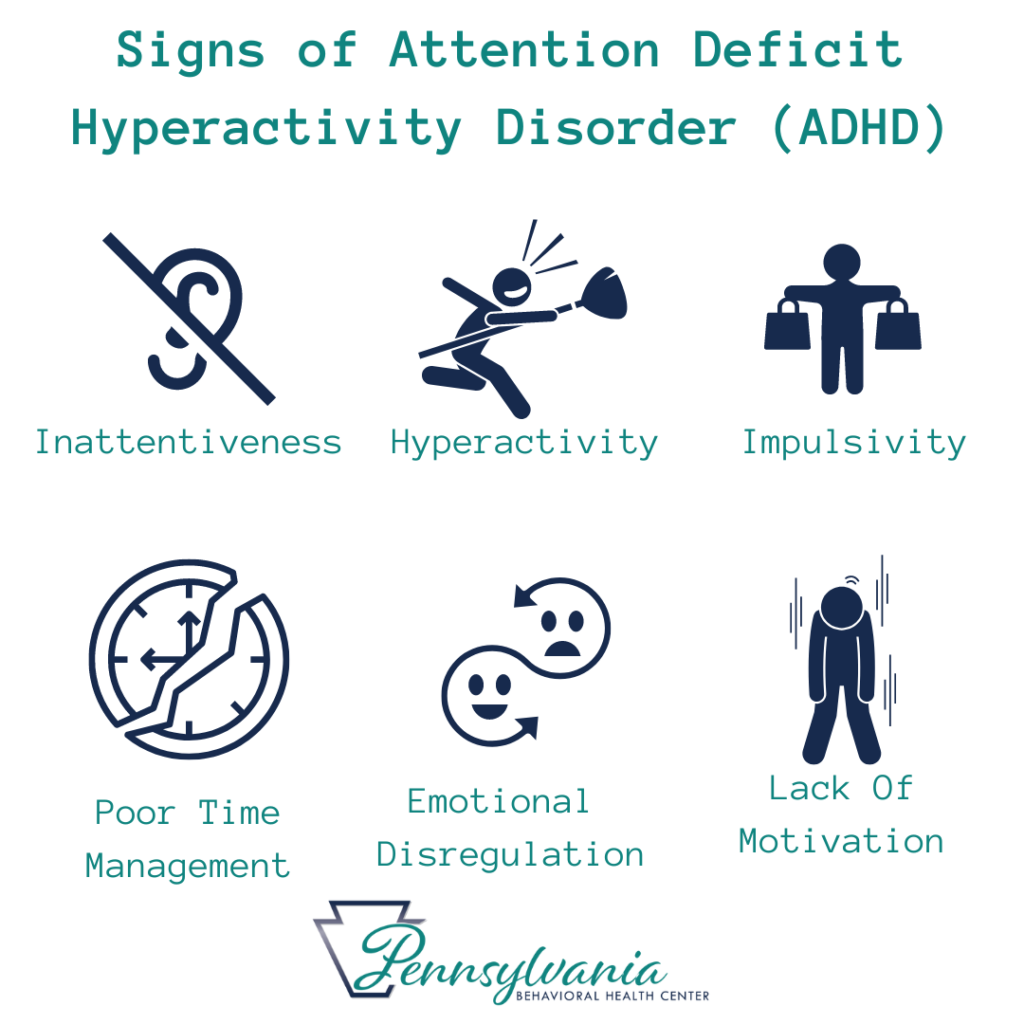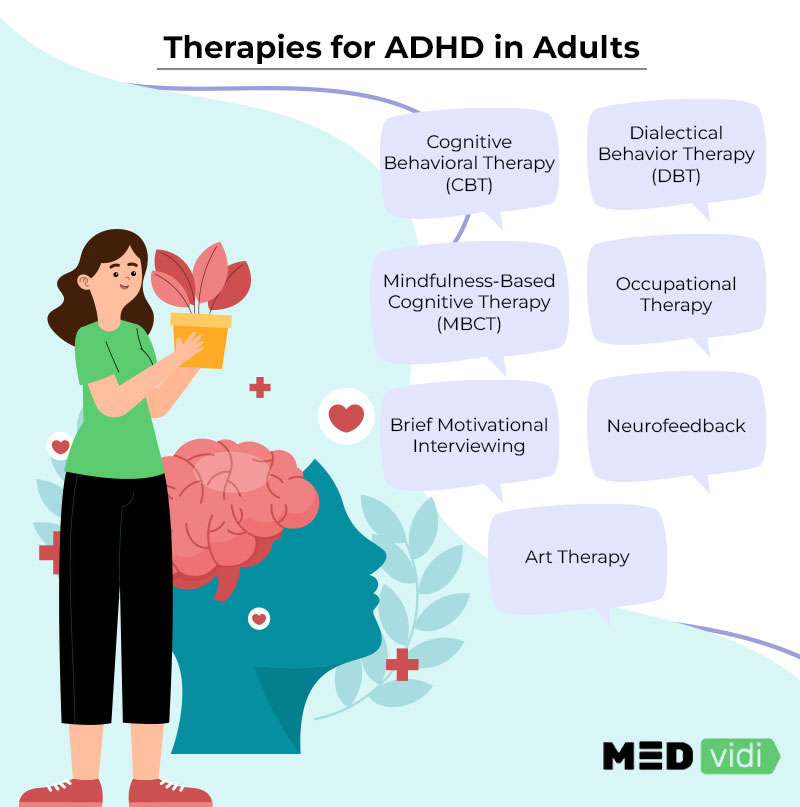The Advantages of Tailored ADHD Therapy Prepare For Better End Results
The implementation of customized ADHD treatment plans has actually arised as a crucial approach in improving therapeutic outcomes for individuals influenced by this condition (ADHD treatment). By recognizing the unique symptoms of ADHD in each individual, these customized treatments advertise greater interaction and motivation, inevitably leading to a lot more effective coping strategies.
Comprehending ADHD Variability
Although Attention-Deficit/Hyperactivity Problem (ADHD) is usually perceived as a single condition, its indications can vary significantly amongst people. Gender distinctions also play a duty, as men are more frequently identified with ADHD and typically present much more overt signs and symptoms, whereas women may offer with much less obvious inattentiveness.
Moreover, people with ADHD may experience a range of emotional and behavior obstacles, such as anxiety or opposite defiance, that can complicate diagnosis and treatment. It is also worth noting that ADHD can offer in a different way throughout numerous social contexts, influencing just how signs are recognized and resolved.
Key Components of Customization
Customized ADHD treatment strategies are based in numerous key elements that guarantee effective monitoring of the condition. First, a comprehensive evaluation is important, including standardized rating scales, meetings, and behavioral monitorings. This thorough examination enables clinicians to recognize the person's special symptoms, staminas, and obstacles.
Second, the participation of numerous stakeholders, including parents, educators, and the individual, contributes to an alternative sight of the individual's requirements. Partnership promotes a helpful atmosphere that can adjust to the person's context and way of living.
Third, therapy plans must be adaptable and adaptable, enabling alterations based upon recurring feedback and the person's evolving demands. This versatility allows the assimilation of various healing techniques, such as behavioral interventions, psychoeducation, and medicine administration.
In addition, social and contextual variables must be considered. Acknowledging the individual's history, worths, and preferences makes certain that the therapy is appropriate and respectful.
Last but not least, routine follow-ups and analyses are necessary to keep track of progress and make necessary modifications. By focusing on these vital elements, individualized ADHD treatment plans can dramatically boost the effectiveness of treatments, causing improved results for individuals with ADHD.
Boosted Involvement and Motivation
To successfully advertise boosted interaction and motivation in individuals with ADHD, it is essential to include strategies that reverberate with their interests and strengths. Personalized therapy plans that align with an individual's passions can cause enhanced engagement in healing activities, promoting a feeling of ownership and enthusiasm for the procedure.
Using interactive and creative methods can also dramatically improve inspiration. As an example, including gamification recurrent major depressive disorder components or real-world applications of abilities can make jobs extra attractive and pertinent. This not only records focus yet likewise enhances learning via satisfying experiences.
In addition, establishing achievable and meaningful objectives customized to the person can reinforce motivation. When individuals see their development in the direction of personally substantial purposes, they are more probable to remain involved. Routine comments and recognition of achievements can even more endure motivation, producing a positive comments loophole that motivates continued effort.
Lastly, cultivating a helpful setting where individuals really feel understood and valued can significantly influence their interaction degrees. When therapy strategies are created collaboratively, integrating input from the individual, they are more likely to really feel spent in their journey, inevitably bring about enhanced outcomes in taking care of ADHD.
Improved Coping Techniques
Developing boosted coping techniques is important for people with ADHD, as it outfits them with efficient tools to browse day-to-day obstacles. An individualized treatment strategy enables for the identification of details coping mechanisms customized to the individual's one-of-a-kind demands and conditions - ADHD treatment. Techniques such as mindfulness, time monitoring skills, and organizational methods can be incorporated into day-to-day routines, cultivating a sense of control Recommended Site and decreasing anxiousness
Mindfulness techniques, including reflection and deep-breathing workouts, aid individuals with ADHD focus their focus and manage their emotions. Time administration methods, such as using timers or breaking jobs into smaller, convenient steps, can mitigate feelings of bewilder. Furthermore, organizational devices like coordinators and checklists can improve effectiveness and accountability.
Long-lasting Favorable Results
Executing customized ADHD treatment plans can result in significant long-term favorable results for individuals. These customized methods, which consider special signs and symptoms, choices, and life conditions, help with extra efficient administration of ADHD symptoms gradually. By concentrating on the specific requirements of the individual, these strategies improve adherence to therapy procedures and foster greater interaction in restorative activities.

Additionally, personalized therapy strategies can dramatically reduce the danger of comorbid conditions, such as stress and anxiety and clinical depression, which are frequently related to ADHD. Early intervention and consistent assistance aid people develop strength and coping strategies, promoting general psychological health.
Eventually, the long-term positive end results of personalized ADHD therapy prepares not only enhance the lifestyle for people but additionally contribute to their overall wellness and success in various life domain names. This holistic technique highlights the significance of personalized treatment in handling ADHD properly.
Conclusion
